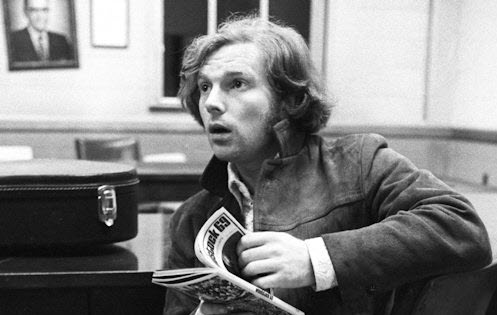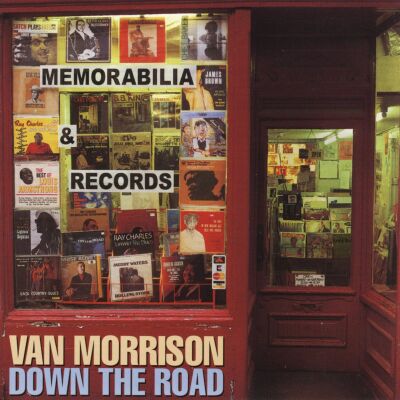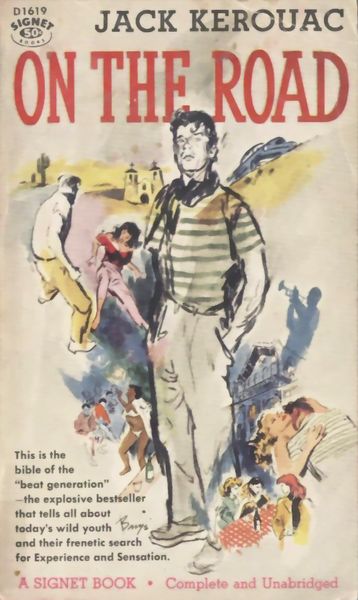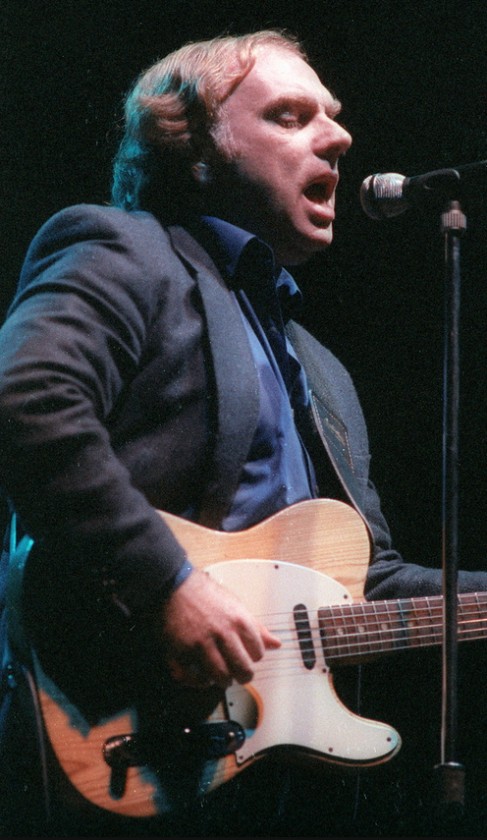OLD post … You’re being redirected to a newer version……
This post is inspired by a chapter in Peter Mills great book Hymns to the Silence: Inside the Words and Music of Van Morrison.
Some of the musicians I was working with very early on were very good, but they didn’t want to leave home, so they didn’t go any further…. but I did [want to leave home] or I felt like I had to
~Van Morrison
Exile
| Wikipedia: Exile means to be away from one’s home (i.e. city, state or country), while either being explicitly refused permission to return and/or being threatened with imprisonment or death upon return. It can be a form of punishment and solitude. |
Exile i a key theme in Morrison’s work & he also named his recording company ‘Exile’.
His foremost song about exile has to be “Too Long in Exile” – the title cut from his 1993 double album.
| Robert Christgau – review of the album: You know, exile — like Joyce and Shaw and Wilde and, oh yeah, Alex Haley. All on account of those “Bigtime Operators” who bugged his phone back when he was green. Now getting on to grizzled, he seeks guidance from the kas of Doc Pomus and King Pleasure and “The Lonesome Road,” an unutterably sad spiritual recast as an upbeat vibraphone feature. And especially, on three cuts, his old soulmate John Lee Hooker, who doesn’t come close to sounding overexposed on Them’s “Gloria” and Sonny Boy’s “Good Morning Little Schoolgirl” and something new by Van called “Wasted Years,” about how the dumb stuff is behind them now. I don’t know about Hook, but Van’s just jiving–when he wanders “In the Forest,” it’s never a safe bet that he’ll get out. A- |
last part of the lyrics:
Too long in exile
You can never go back home again
Too long in exile
You’re about to drive me just insaneToo long in exile, been too long in exile
Just like James Joyce, baby
Too long in exile
Just like Samuel Beckett baby
Too long in exile
Just like Oscar Wilde
Too long in exile
Just like George Best, baby
Too long in exile
Just like Alex Higgins, baby
From The book:
The key to this are the lines `Too long in exile / You can never go home again’: there is a connection forged between place and being, so that although one might be able to return to the same place in which one grew up, for example, both place and person change and hence one can indeed never go back home again – because everything has changed. It is not only space but time too that separates the past and the present in terms of place.’
This is off course a well known theme in art/music.. one of my fav examples has to be “Rank Stranger” by the Stanley Brothers (btw today is the late Carter Stanley’s Birthday):
I wandered again to my home in the mountains
Where in youth’s early dawn I was happy and free
I looked for my friends, but I never could find them
I found they were all rank strangers to me
———-
| From David Fricke’s review of the album: Van Morrison poses the question in song, midway through this fine new album: “Whatever Happened to P.J. Proby?” The answer: Proby has a Web site. A U.S.-born singer who enjoyed a flash of British fame in the mid-Sixties, Proby now tells his tale and sells his wares on the Net, holding tight to his precious place in rock lore. Screaming Lord Sutch isn’t here to appreciate his name check in the second verse. An English rock pioneer and early employer of Jimmy Page and Ritchie Blackmore, Sutch died by his own hand in June 1999, forgotten by all but the most obsessive record collectors.Morrison was fronting Them in Sutch’s and Proby’s heydays, and “Whatever Happened” — a noirish blues with a creeping-wolf rhythm — is a salute to lost and stranded peers, sung with pugnacious affection. It is also top Morrison, a biting indictment of pop today (“There’s nothing to relate to anymore/Unless you want to be mediocre”) and a personal statement of bulldog purpose: “Facing head-on and doing it my way.” Morrison spends the rest of Down the Road living up to that promise. … read more -> rollingstone.com |
In “Whatever Happened to PJ Proby?” (Down The Road – 2002) he sings:
Still making my way down the highway
Still got a monkey on my back
Facing head on and doing it my way
Please can you cut me some slackAll the cards fell so many rounds
Down the road a piece Jack
I saw a bus coming and I had to get on it
I’m still trying to find my way backWhatever happened to all those dreams a while ago
Whatever happened way across the sea
Whatever happened to the way it’s supposed to happen
And whatever happened to me
Lets embed a live version from Spain 2002 as well.. this is a great song:
Eternal Movement
For me, it was Kerouac. I working with this geezer who was reading all this stuff so he gave me a few books by Kerouac and then Sartre, Nausea. Things like that. Initially you go – woh! – when you’re 58 it’s a different take but I suppose I still have the same influences. Even now, I can still see the direct line back to those kind of things.
~Van Morrison (to Niall Stokes in 2003)
| From Wikipedia: On the Road is a novel by American writer Jack Kerouac. On The Road is based on the travels of Kerouac and his friends across America. It is considered a defining work of the postwar Beat Generation with its protagonists living life against a backdrop of jazz,poetry, and drug use.The idea for On The Road formed during the late 1940s; it was to be Kerouac’s second novel. It underwent several drafts before Kerouac completed it in April 1951. -It was first published by Viking Press in 1957.When the book was originally released, The New York Times hailed it as “the most beautifully executed, the clearest and the most important utterance yet made by the generation Kerouac himself named years ago as ‘beat,’ and whose principal avatar he is.” In 1998, the Modern Library ranked On the Road 55th on its list of the 100 best English-language novels of the 20th century. The novel was chosen by Time magazine as one of the 100 best English-language novels from 1923 to 2005. |
First published in 1957, On the Road is full of dreamy, poetry-soaked evocations of the pleasures of eternal movement.
……if you read the novel with an eye on it’s effect on Morrison’s work, there are innumerable points of contact.
~Peter Mills (Hymns to the…..)
From Morrison’s “Cleaning Windows”:
I heard leadbelly and blind lemon
On the street where I was born
Sonny terry, brownie mcghee,
Muddy waters singin Im a rolling stone
I went home and read my christmas humphreys book on zen
Curiosity killed the cat
Kerouacs dharma bums and on the roadWhat’s my line?
Im happy cleaning windows
Take my time
Ill see you when my love grows
Baby don’t let it slide
Im a working man in my prime
Cleaning windows…
Live @ Austin City Limits, Nov, 2006:
Live in Scotland 1988:
From Wikipedia:
The version of “Cleaning Windows” that was released as a single and was included on the 1982 album was recorded at the Record Plant Studios in Sausalito, California on July 27, 1981.
The biographically-based song chronicles a cheerful and nostalgic look back at a carefree time in Morrison’s life when he was still a part-time musician, playing saxophone at the weekend. He names his favorite musical artists of the time such as Muddy Waters, Jimmie Rodgers, Lead Belly, along with author Jack Kerouac and his books, The Dharma Bums and On the Road,, and even Buddhist Christmas Humphreys and his “.. book on Zen.” He was soon to leave his boyhood behind and after joining the Monarchs, spend several months in Scotland, Germany and England touring with them as the International Monarchs.
According to Steve Turner in “Cleaning Windows” “Van sketched the details of his life during 1961 and 1962, and captured the balance between his contentment at work and his aspirations to learn more about music. It conveyed the impression that his happiness with the mundane routine of smoking Woodbine cigarettes, eating Paris buns and drinking lemonade was made possible by the promise that at the end of the day he could enter the world of books and records…”
John Milward wrote in a 1982 Rolling Stone review: “Hung on a metaphor as clear as glass, ‘Cleaning Windows’ applies one night’s notions to a lifetime. It’s the LP’s musical highlight as well, with a guitar-organ combination reminiscent of the Band, and a jumping sax solo to boot. Shaking himself awake each morning, the dedicated romantic looks to see how he’s grown. Peppered with fraternal details that recall ‘And It Stoned Me,’ ‘Cleaning Windows’ boldly restates the self-help maxim that you are your own best friend.”
Paul Macinnis with The Guardian wrote: “The message of the song is simple – the window cleaner’s happy in his work – and the lyrical vignettes combined with delicate, upbeat R&B (with Mark “That ain’t working” Knopfler on guitar) convey that feeling wonderfully.”
… to be continued…
-Egil







One thought on “Van Morrison: Exile, Place & Eternal Movement – Part.1”
Comments are closed.